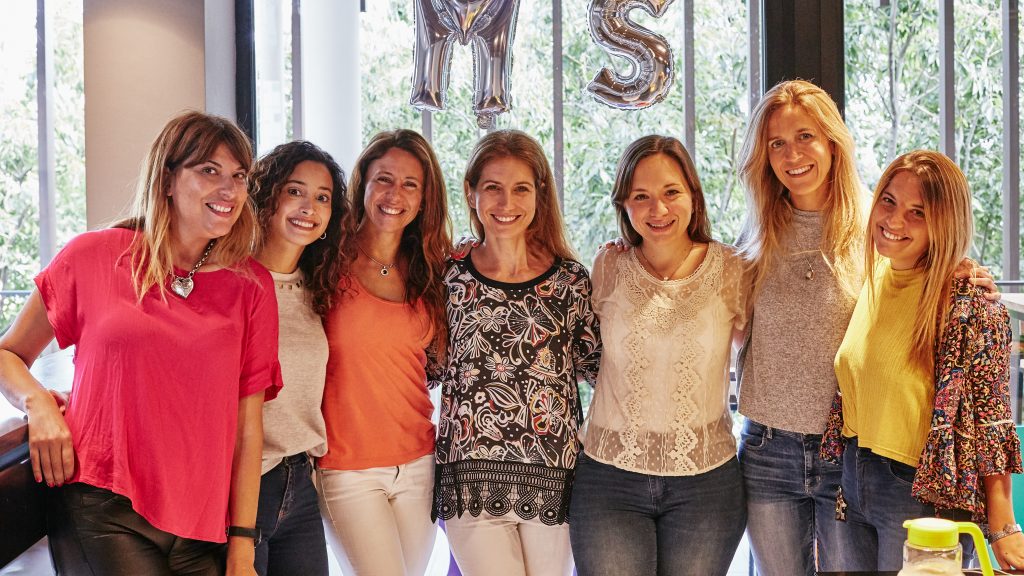Gender equality is rooted in the corporate culture that you have created. Therefore, in order to build equality, you have to go back to the very foundation of your organization’s identity. Here’s what that entails.
1. Examine Your Corporate Identity
Every organization is capable of creating its own identity, which is sustained by values and cultural traits. From there, we can understand that identity is a deliberate construction. In other words, it is planned and originates from a decision-making process, and from the reality that each company wants to build.
All of these features get rolled up into what becomes your corporate culture. Manifestations of your corporate culture appear everywhere, from the details of day-to-day office existence to the colors on the break room wall to the strategy of your entire organization.
So, in this sense, organizations are creating culture.
2. Recognize the Profound Impact of Corporate Culture
Companies, as part of society and social construction, have become agents of fundamental change. They represent an opportunity to break existing mental chains and actually create new paradigms. The corporate culture that each creates and reinforces seeps out into general society and creates a profound impact.
But what, exactly, does that corporate impact look like lately?
3. Analyze the Impact
What’s the impact of corporate culture, and, in the context of gender equality, how are we doing? As a whole, pretty good. Of course, we still need to go a long way to completely reduce bias in the workplace.
Let’s put things into a historical context.
Until not long ago, being a woman and achieving progress in a professional career were incompatible ideas, partly because they were still tied to old precepts about the role of women in society. Today, we can say that we have taken steps to overcome these concepts and women, as a collective and as individuals, have been empowered.
Part of that change is thanks to the fact that many companies joined the movement to reverse this situation, to become contributors in the race to achieve gender equality. They’ve done this not only through discourse but also through policies — many of which hail from the Human Resources department. Through these efforts, which seek to leverage the growth of women in the industry, many women today occupy strategic roles within companies.
However, as we said earlier, there’s still work to be done. Here’s the state of things here at Making Sense.
Making Sense as an Agent of Change
At Making Sense, we consider it of utmost importance to promote an organizational culture that’s based on conditions of equality. We believe that this culture can be built and reinforced through the decisions we make regarding policies and practices. It’s these decisions that can contribute to the empowerment of women and the reduction of the gap that exists today between men and women.
“We seek to make decisions that allow us to build a development environment where women can find the conditions to uncover their full potential.”
We seek to make decisions that allow us to build a development environment where women can find the conditions to uncover their full potential.
Although it is daily work with us and not limited to calendar events, each month of March we take a moment to review where we are standing and where we want to go. In particular, we listen to the experience of our women.
This year, all the women that make up the Making Sense team met in the offices of Mar del Plata, Córdoba, Tandil and via streaming to share a breakfast and a moment of reflection and debate. Topics included:
- Motherhood and work
- Participation of women in the IT industry
- The role of women in management positions vs technical positions
- The possibilities of growth that they find within the industry and at Making Sense
We also heard the testimony of our women leaders, whose experience leading teams gives us valuable insight. They invited us to reflect on the concept of the Glass Ceiling, explaining how there are precepts established in the so-called social collective that prevent women from growing within a professional career.

We invite you to see the images of the event.
The speaker’s team included Paula Cascú, HR Manager; Sol Romeo, CMO Doppler; Betiana Castro, Head of QA & BA; Jennifer Greyling, Project Manager; Dolores Moyano, Project Manager and Salomé Alvarez, HR Champion.
As a closing event, our Human Resources team presented the new maternity benefit, which incorporates the concept of Soft Landing into the existing benefit. This practice of HR allows those who have been mothers to reincorporate their activities gradually once the license period has ended, thus seeking a balance between personal and professional life.
We strongly believe that the possibility of having these important discussions is a key element in the construction of a culture that promotes gender equality and the empowerment of women. Each conversation helps to support our company culture of supporting women and brings us closer to fulfilling our commitment to achieving full gender equality.
